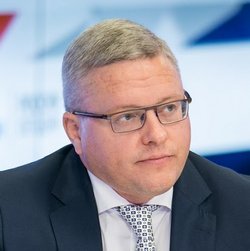Rostec changes fastening at BelZAN: Bashkiria wants to become hip prosthesis production centre
Over 200,000 Russians annually need hip replacement surgeries
Avtonormal factory from Belebey (BelZAN), which is a part of Rostec’s RT-Capital specialised in car components for KAMAZ and AvtoVAZ, is opening a new market niche — a medical fastening that is implanted into the human organism together with a hip prosthesis. BelZAN and the manufacturer of joint prostheses TREK-E Composite signed an agreement to launch production of medical components for hip replacement and traumatology in the Bashkir enterprise. As Realnoe Vremya learnt, Tatarstan wanted to set up a joint venture with Aesculap AG from Germany to produce two types of hip prostheses, but, unfortunately, the republic missed the chance of seizing the market of Russian government procurement in hip replacement.
Hip prostheses of Russian origin
Avtonormal factory from Belebey and TREK-E Composite from Moscow, which possesses a federal licence to develop and produce medical goods, agreed to create full-cycle production to make components for joint replacement. As RT-Capital’s press service said, BelZAN will open a full-cycle plant to make components for hip prostheses, medical bolts and equipment on its territory, while TREK-E Composite will deal with special coating and sterilisation.
The project will be implemented with BelZAN’s own money and won’t need borrowings. “Today the enterprise already has 85% of necessary equipment. The first batch of workpieces is expected at the end of the year, while TREK-E Composite’s licence will be used when the products enter the Russian market,” the press service of RT-Capital explained.
TREK-E Composite has been designing and making big hip prostheses since 2002. Over this time, the company has created and launched the production of over 10 types of hip prostheses.
To make in three years
At the first stage of the project, the Belebey factory will launch a full cycle of cold stamping of hip joint prostheses, design necessary documentation, certify the production technology of elastic drills. The next step will be to master the production of components for a knee prosthesis. According to their plans, this will happen in the next two years. At the same time, BelZAN will launch the production of zirconic cores for tooth replacement and expand the range of fastenings and tools for different types of metals for surgeries. The production volume will make up 100,000 workpieces of globe heads for hip prostheses and 3 million cores a year by 2022.
An import substitution programme for medical goods at BelZAN will allow reducing the cost of joint replacement by 20%, Rostec hopes.

Hip prostheses aren’t sold in the shop, the state buys them
The alliance of BelZAN and TREK-E Composite hopes to meet the needs of the Russian market for medical fastenings and components for hip replacement and traumatology in the next five years. “Today the production of medical fastenings and hip prostheses isn’t developed, while Russian manufacturers account for 7%. We consider this market niche very promising. According to our estimates, the volume of the medical instrument market in the Republic of Bashkortostan alone exceeds a billion rubles. We set ourselves an ambitious task of holding a significant share of this market,” Director General of RT-Capital Kirill Fyodorov noted.
Within the project, it is planned to create a laboratory to test the medical materials in the Berdin Central Research and Development Centre for Ferrous Metallurgy. Together with the Institute of Metallurgy and Materials Science of the Russian Academy of Sciences, it is considered to develop new types of steel and alloys for medical purposes.
Hip prostheses aren’t sold in the shop, almost the whole market works for government procurement, while the main part of quotas is given to buy prostheses made by foreign producers, says Tatarstan surgeon, laureate of Russian and Tatarstan state awards Khaydar Gafarov who is famous in the country and has over 30,000 surgeries under his belt.
“Import substitution isn’t simple, it is an alloy of high technologies and materials. Research and development have been done abroad for decades, huge investments of the government are spent on it, while they are introduced in close cooperation with practising surgeons who replace hips. I think that the Russian manufacturer will have to meet with leading doctors from Moscow, Volga Region and the Urals and present its goods at conferences,” he assumes and adds: “It will take at least two years before the first surgery — it takes time to obtain permits and tests”.
How European hip replacement leader pops in Kazan
Now health care agencies of Russian regions purchase foreign prostheses made in Switzerland, Germany, France and the USA, as we don’t have Russian goods. So Tatarstan tries to buy those with a higher quality from Germany and Switzerland.
“We wanted to launch licensed production of hip prostheses in Kazan Motor-Building Production Association to meet the needs of the whole country in the early 2000s under the patronage of First President Mintimer Shaimiyev. Aesculap AG from Germany was the licenser and partner. It could have been the first localised production of hip prostheses in Russia. At that moment it was planned to localise the production of hip, knee prostheses and instruments for surgery,” Gafarov who participated in talks as consulting surgeon on Mintimer Shimiyev’s instruction recalled. The Ministry of Health of Russian supported the initiative. However, the project failed due to subjective reasons, while the German partners had to leave Tatarstan.
